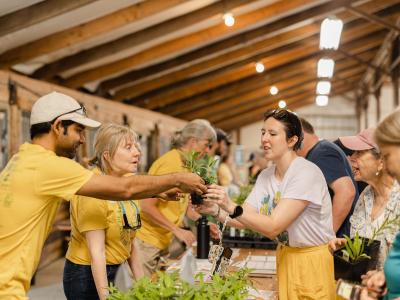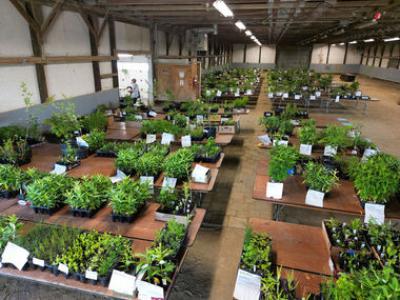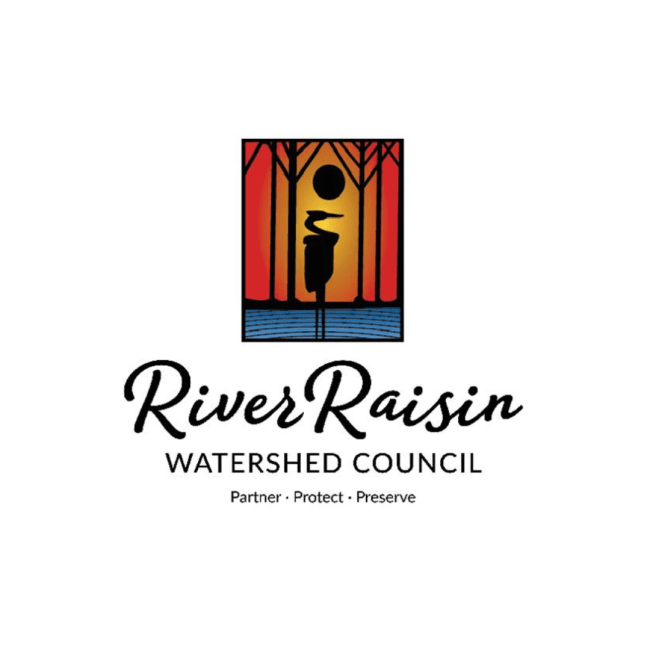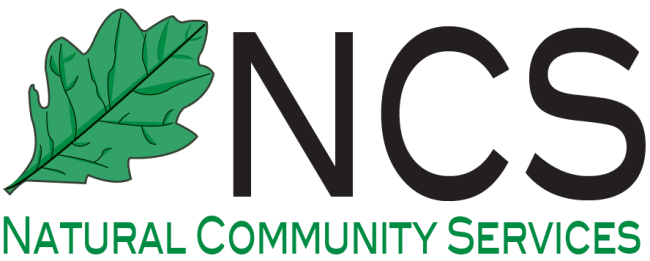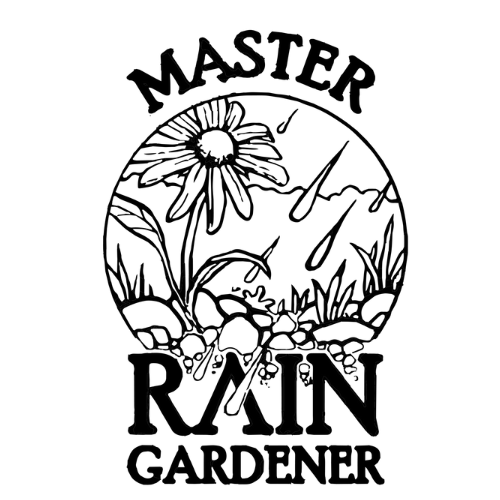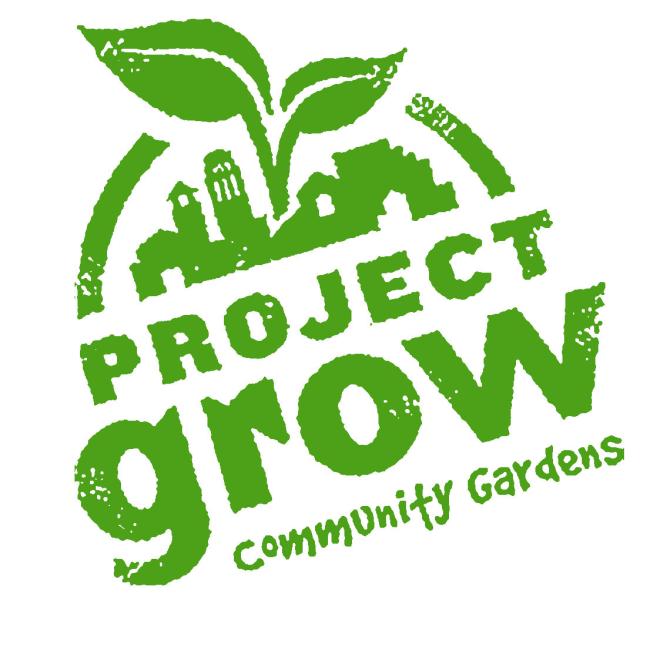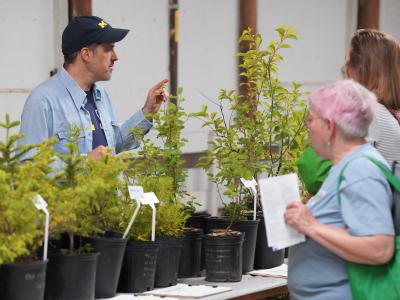
Native Plant Expo & Marketplace
Saturday, June 6, 2026: 9 am - 1 pm
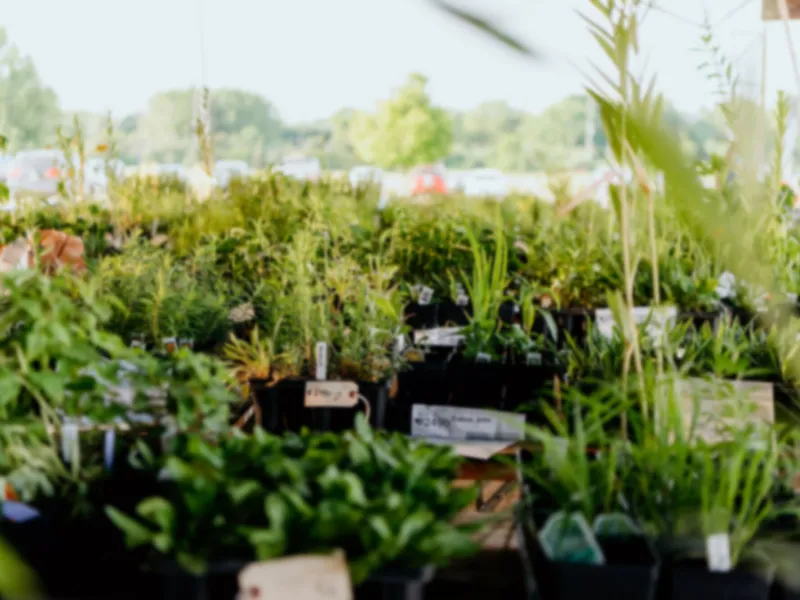
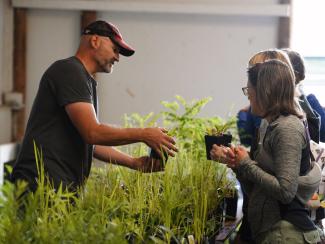
The Native Plant Expo & Marketplace (NPEM) offers one convenient location to shop for Michigan native plants from several Michigan native plant growers, learn how to establish and maintain native landscapes and connect with companies specializing in planning native landscapes for residents in Washtenaw County and the surrounding areas.
2025 Native Plant Expo by the numbers!
-
15 Native Plant Nurseries
-
42 Total Vendors / Exhibitors
-
2500+ Free Milkweed Plants and Native Seed Packets
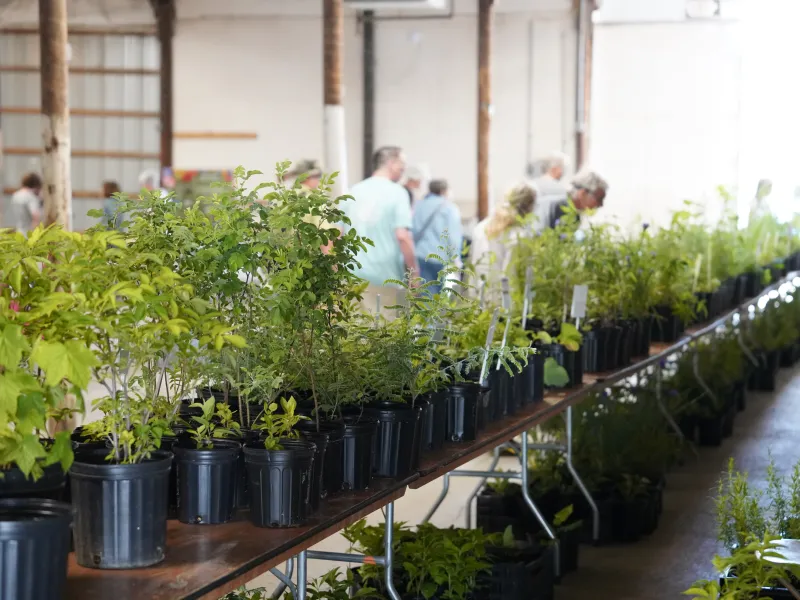
Nurseries, Vendors, Exihibitors, & Food Trucks!
We host several companies specializing in native plants and seeds as well as landscaping companies and non-profit organizations focused on native plant landscapes. There will be ample opportunity to purchase a wide variety of additional plants, seeds and services. The event offers limited pre-sales and many nurseries with day-of sales.
2025 Nurseries
- Bendy Stem Farm
- BetterFinds
- Brines Farm
- Copper Leaf Forest
- Designs By Nature
- Detroit Wildflower Nursery
- East Michigan Native Plants
- Feral Flora
- Hickory Nut Farmstead
- Liv's Native Nursery
- Michiganense Natives
- New Leaf Natives
Native Restoration Solutions- Perennial Gold
- Suburban Sown Micro Nursery
- Windy Rock Nursery
- Wild Ginger Woodlands
- WildType (Pre-sale only, limited extras available. Not attending)
2025 Food & Beverage Vendors

2025 Exhibitors & Vendors
- Adapt: Community Supported Ecology
- Adapt Landscapes
- Ann Arbor Farm and Garden
- Bee Present Honey
- Black Cat Pottery
- Garden Juju Collective / Gateway Farm
- Huron River Watershed Council & Middle Huron Partners
- JLW CISMA
- Jo Jo Farms
- Legacy Land Conservancy
- Matthaei Botanical Gardens and Nichols Arboretum
- Michigan Lakes and Streams Association
- Milkweed Giveaway!
- Natural Community Services
- Seeds to Community
- Project Grow
Switch Stitch- Wander & Gather
- Washtenaw County Water Resources Commissioner's Office
- Washtenaw County Parks and Recreation
- Washtenaw Pheasants Forever
- Wild Ones Ann Arbor

The Native Plant Expo has over 16 nurseries!
Photo credit Paul Michael Peters
Native Plant Expo updates and past events!
Special Features!
In the 7th year of this event, we are offering more opportunities for all ages to learn, receive plants, and to enjoy the event!
Educational Speaker Stage
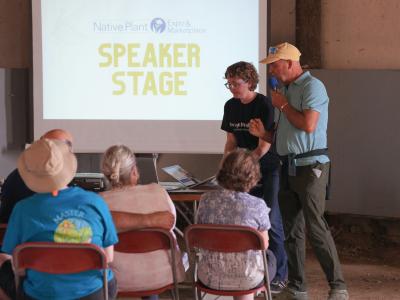
We've got a great line up of native plant nurseries, garden clubs, and conservation organizations speaking at the Speaker Stage this year!
Jonathan Parker with Seeds to Community - "Growing Plants with Seeds to Community"
Nate Ayers with The Tree Lab - "The Tree Lab: A New Model of Ecological Restoration"
Shikha Singh with JLW CISMA - "Invading the Shire: Identification and Impacts of Lesser Celandine"
& Many more!
Milkweed Giveaway!
We're glad to announce that we'll be repeating the Milkweed Giveaway for attendees in 2025! Over 2,300 plants will be given away first come, first served.
Thanks to generous donations, we were able to give 2888 native Milkweed plants (5 species of Asclepias spp.) to over 950 residents in 2023, and gave 2400 plants to over 630 residents in 2024.
MBGNA: Nature Kids

Join NPEM sponsor, Matthaei Botanical Gardens & Nichols Arboretum in the Nature Kids space for family fun, featuring Nature Play and games and exploration with Michigan Native Plants.
Spring Native Plant Pre-Sales
The Native Plant Expo & Marketplace offers multiple native plant nurseries selling hundreds of species of native plants! For the planners out there, we offer limited pre-sales online from February-March via our Spring Native Plant Sale:
This event is made possible by generous support by our Sponsors!
2025 Sponsors: Community Members
Volunteers needed for the Native Plant Expo & Marketplace!
The Native Plant Expo & Marketplace is supported by the efforts of many volunteers. Volunteers help set-up, plant order sorting, and getting orders to customers. It's a fun way to learn the plants and meet the community of growers.
Apply to be a Vendor / Sponsor
Space is limited! Local native plant nurseries, exhibitors, and vendors are welcome to apply below
Vendor Application open mid-November to April 1.
Missed the deadline?
You can contact us: 734 302 8713 / expo@washtenawcd.org
All vendors must comply to the 2025 Event Rules & Regulations.
